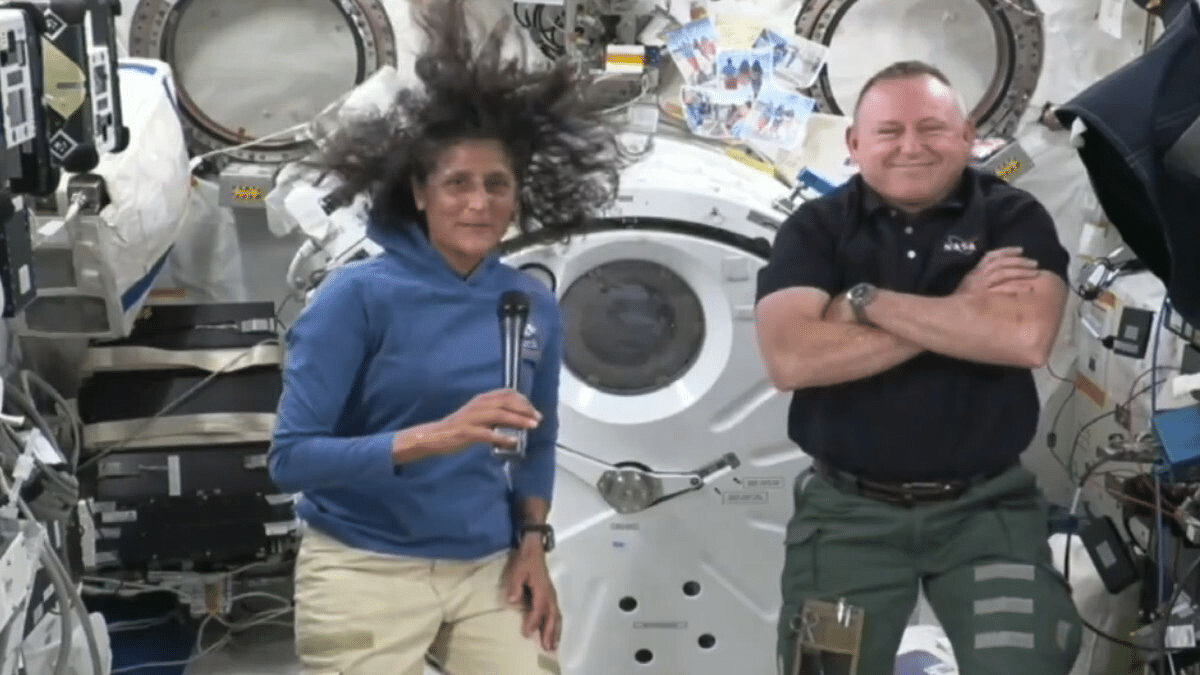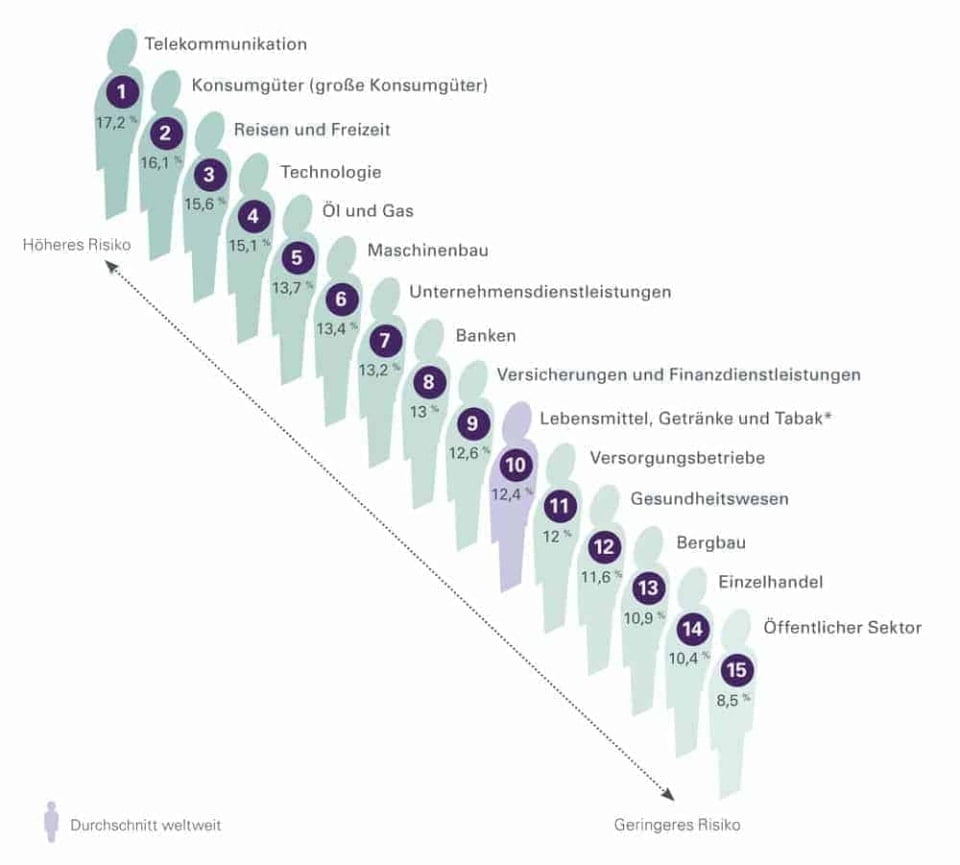Astronauts' Extended Space Mission: A CBS News Report

Table of Contents
The Physical and Psychological Toll of Extended Space Travel
Extended space missions present significant physical and psychological challenges to astronauts. The harsh realities of the space environment demand rigorous preparation and ongoing support to mitigate risks and ensure crew well-being.
Physical Challenges:
Long-duration spaceflight exposes astronauts to a unique set of physical hazards. Microgravity significantly impacts the human body:
- Bone density loss and muscle atrophy: The lack of gravity weakens bones and muscles, leading to potential long-term health issues. Countermeasures like exercise regimes and medication are crucial.
- Radiation exposure and its long-term health effects: Astronauts are exposed to higher levels of ionizing radiation in space, increasing their risk of cancer and other radiation-related illnesses. Shielding and radiation monitoring are vital components of extended mission planning.
- Cardiovascular system changes and the risk of heart problems: The cardiovascular system adapts to microgravity, potentially leading to decreased heart function and increased risk of heart problems upon return to Earth.
- Sleep disturbances and the impact on cognitive function: The unusual environment of space can disrupt sleep patterns, affecting cognitive performance and potentially impacting mission success. Strategies to improve sleep quality are crucial for maintaining crew efficiency.
These extended mission health risks associated with long-duration spaceflight are a major area of ongoing research, aiming to develop effective countermeasures and enhance astronaut safety.
Psychological Impact:
The psychological impact of extended space missions is equally significant. The isolation and confinement of space travel can take a toll on mental health:
- Isolation and confinement leading to feelings of loneliness and depression: The limited social interaction and monotonous routine can lead to psychological distress.
- Stress management and coping mechanisms in a high-pressure environment: Astronauts must manage intense stress associated with mission criticality and potential hazards.
- Team dynamics and the importance of crew cohesion: Maintaining strong teamwork and positive crew dynamics is crucial for mission success and psychological well-being.
- Effects of prolonged sensory deprivation: The unchanging environment can lead to sensory deprivation, affecting mood and cognitive function.
Understanding astronaut psychology and providing appropriate mental health support are vital for successful extended missions. Research focuses on improving crew selection, training, and in-flight support to mitigate the mental health challenges of extended mission mental health.
Technological Advancements Supporting Extended Missions
Extended space missions are only possible due to remarkable technological advancements that support astronaut survival and mission success.
Life Support Systems:
Sustaining life in the harsh environment of space requires sophisticated life support systems:
- Advanced recycling and resource management technologies: Recycling water, air, and waste is crucial for long-duration missions, minimizing reliance on Earth-based resupply.
- Improved radiation shielding and protection measures: Advanced materials and techniques are used to protect astronauts from harmful radiation.
- Enhanced medical diagnostic and treatment capabilities: Onboard medical facilities and remote diagnostic capabilities are essential for addressing medical emergencies.
- Self-sustaining food production systems: Growing food in space reduces reliance on supplies from Earth, improving mission autonomy and sustainability.
These life support systems are constantly being refined to enhance their reliability and efficiency, improving the safety and feasibility of extended space missions.
Communication and Navigation:
Reliable communication and precise navigation are critical for long-duration missions:
- Reliable high-bandwidth communication systems for Earth contact: Maintaining constant communication with ground control is essential for mission monitoring and support.
- Advanced navigation and guidance systems for precise maneuvers: Accurate navigation is vital for precise spacecraft maneuvering and trajectory adjustments.
- Early warning systems for space debris and other hazards: Detecting and avoiding potential hazards like space debris is essential for mission safety.
- Robotic assistance for complex tasks and repairs: Robotic systems can assist with complex tasks and repairs, reducing the risk to astronauts.
These technologies are crucial for the successful execution and safety of extended space missions, ensuring reliable communication and precise control throughout the journey.
Scientific Discoveries and Research Opportunities During Extended Missions
Extended missions offer unparalleled opportunities for scientific discovery and research.
Deep Space Exploration:
Extended missions enable in-depth exploration of our solar system and beyond:
- Studying distant planets, moons, and asteroids: Close-up observations provide valuable insights into the formation and evolution of celestial bodies.
- Searching for signs of life beyond Earth: Extended missions allow for more comprehensive searches for evidence of past or present life on other planets.
- Gathering data on the formation and evolution of the solar system: Extended missions provide an opportunity to gather comprehensive data to improve our understanding of the solar system's origin and evolution.
- Testing new technologies for future space exploration: Extended missions serve as a testing ground for new technologies needed for future deep space exploration.
These explorations push the boundaries of our knowledge and inspire future generations of scientists and explorers.
Earth Observation and Monitoring:
Extended missions offer a unique vantage point for observing and monitoring Earth:
- Monitoring climate change and its effects: Long-term observations from space provide valuable data on climate change impacts.
- Observing weather patterns and predicting natural disasters: Space-based observations improve weather forecasting and disaster prediction.
- Studying the Earth's atmosphere and its interaction with space: Extended missions provide opportunities to study the Earth's atmosphere and its complex interactions with space.
- Improving our understanding of the planet's resources: Space-based observations help monitor and manage Earth's resources more effectively.
The benefits of Earth observation from extended space missions are immense, contributing to our understanding of our planet and improving our ability to protect it.
Conclusion
Astronauts' extended space missions represent a monumental leap for humankind, pushing the boundaries of human endurance and scientific discovery. While the challenges are significant, the technological advancements and potential scientific breakthroughs make these extended journeys vital for our understanding of the universe and our place within it. Further research into mitigating the physical and psychological effects of prolonged space travel, coupled with continued advancements in space technology, is crucial to ensuring the continued success and safety of future astronauts' extended space missions. Stay informed on this vital area of space exploration by following CBS News and other reputable sources for updates on the latest developments in extended space missions.

Featured Posts
-
 Payton Pritchard Celtics Guard Signs With Converse
May 12, 2025
Payton Pritchard Celtics Guard Signs With Converse
May 12, 2025 -
 Ukraine Russia Negotiations Trump Advocates For Direct Talks Ignoring Ceasefire Demand
May 12, 2025
Ukraine Russia Negotiations Trump Advocates For Direct Talks Ignoring Ceasefire Demand
May 12, 2025 -
 2025 Indy 500 Analyzing The Riskiest Positions For Drivers
May 12, 2025
2025 Indy 500 Analyzing The Riskiest Positions For Drivers
May 12, 2025 -
 Plei Of Nba 2024 Zeygaria Programmatismos And Plirofories
May 12, 2025
Plei Of Nba 2024 Zeygaria Programmatismos And Plirofories
May 12, 2025 -
 Payton Pritchards Journey From Childhood Dreams To Career Triumphs
May 12, 2025
Payton Pritchards Journey From Childhood Dreams To Career Triumphs
May 12, 2025
